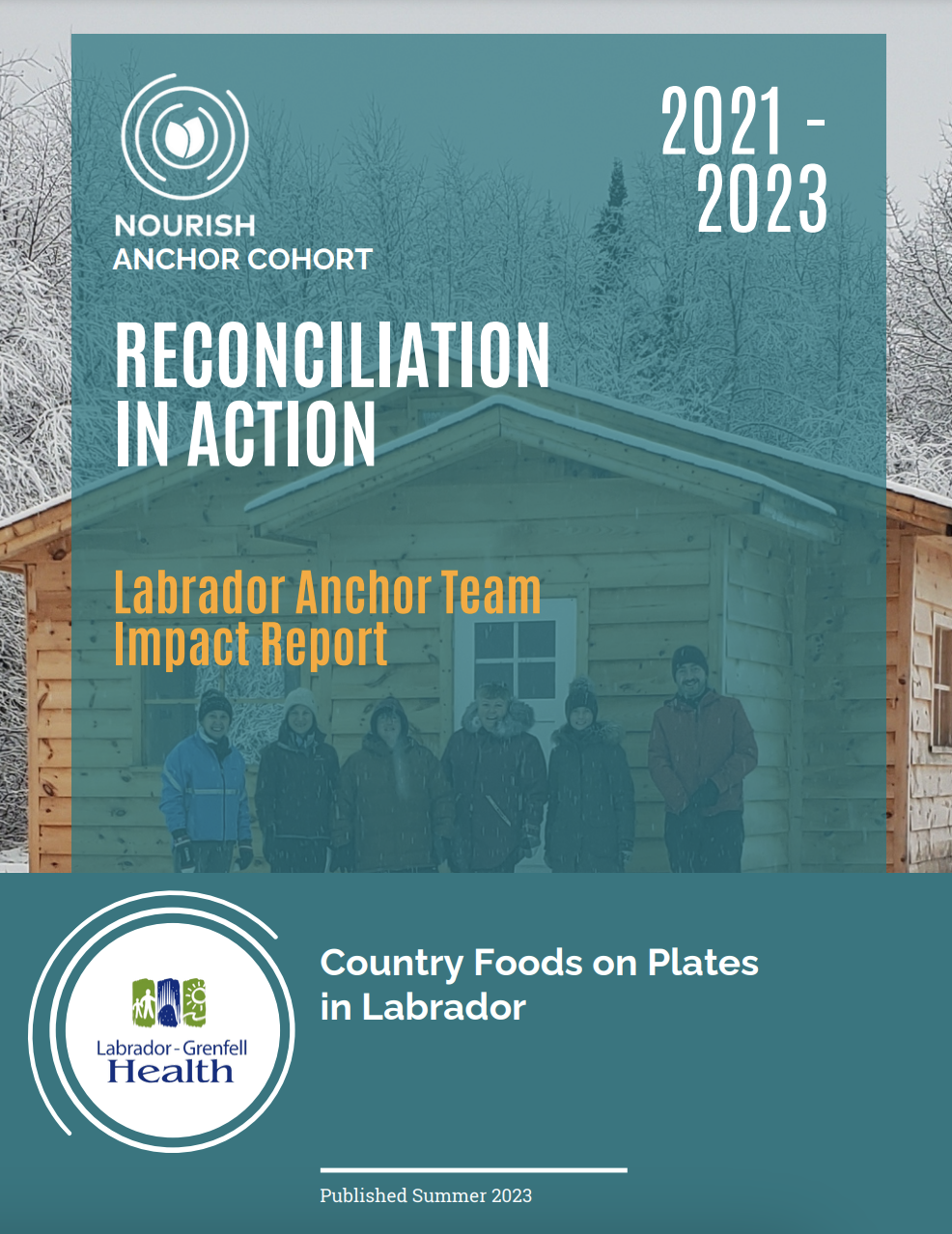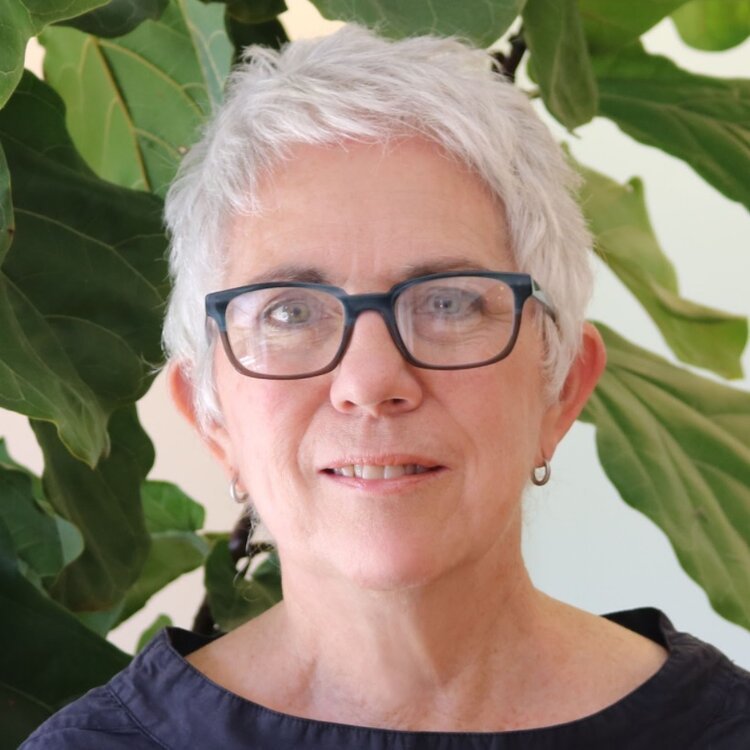The Anchor Cohort is a national Cohort harnessing the power of food to build health for people and planet, within and beyond health care’s walls.
Nourish's second Cohort, the Anchor Cohort (2021 - 2023) has now concluded. To learn more about the teams involved and their accomplishments, please visit their profile pages linked below and check out their impact reports to learn more about the systems interventions that activated community assets and explored innovative food for health solutions.
Anchor Cohort (2021-2023) Profile Pages:
Impact Reports
About the Anchor Cohort (2021 - 2023)
The Anchor Cohort ran for two years, from June 2021 - September 2023. During this time, teams were supported with coaching, mentorship, and training around Western and Indigenous approaches to systems thinking and innovation, accompanied by resources and financial support for land-based learning, prototyping, and scaling solutions. Programming was primarily delivered virtually and was complemented by place-based teamwork and in-person gatherings. Nourish’s evaluation, policy, and communication efforts helped to share learnings and stories from the Cohort, while revealing transition pathways from which other health care champions, government, and partners can learn. The work of each team can be reflected by Nourish’s Food for Health Levers, which show how individual interventions amplify others, leading to change in food, health, social, and ecological systems. Below is a depiction of the Food for Health Levers this Cohort worked to address during their time in the program.
Our approach to developing systems leadership
Through their time in the Cohort, teams were exposed to a number of Western and Indigenous approaches to systems change and leadership: systemic design, awareness-based systems change, Two-Eyed Seeing, circle practices, land-based learning, and more.
These approaches are synthesized in the Nourish Clover, which takes the Cohort through four seasons of work:
Sensing the system;
Surfacing insights;
Shaping prototypes; and
Sustaining & scaling solutions.
The Nourish team was joined by some notable partners to deliver key aspects of the program, outlined below.
Understanding complex problems with Transition Design
Professor Terry Irwin, Director, Transition Design Institute, Carnegie Mellon University
Dr. Gideon Kossoff, Associate Director, Transition Design Institute, Carnegie Mellon University
Complex systems problems such as poverty or food insecurity require systems approaches, and Transition Design provides tools for us to understand interrelated and interdependent problems within the context, place, and cultures around them. The Transition Design framework begins with mapping a problem space, stakeholder dynamics, and the historical context from which the problem(s) emerged, then moves toward solution-finding that takes into account complex systems dynamics.
Anchor Cohort participants had the opportunity to learn firsthand from Professor Terry Irwin and Dr. Gideon Kossoff from Carnegie Mellon University through a series of workshops, exercises, and personalized feedback. The goal was for each team to fully understand the complex “wicked” problems in their communities so that they could develop effective interventions.
Learn more about the Transition Design framework here.
Using strategic foresight to map possible futures across the Three Horizons
Keren Perla, Director, Energy Futures Policy Collaborative
The Three Horizons framework is part of a broader field of study focused on the future called Strategic Foresight. Foresight assumes the future is highly uncertain and that the further out you look, the more uncertain it becomes. Nourish worked with Keren Perla to adapt The Three Horizons model (originally developed by Bill Sharpe, International Futures Forum) for the Anchor Cohort, supporting collaboratives to create “portfolios of innovation” that could be tested and validated through prototyping.
The Three Horizons enables us to develop an integrated mix of system interventions to shape desired futures in new ways. Innovations associated with each horizon all have their place in the transformation process, and are not sequenced according to time or priority:
Horizon 1 (“Same game, same rules”): Refers to innovations that likely deliver incremental change within an existing system.
Horizon 2 (“Same game, different rules”): Creates disruption to introduce new opportunities in a given system, challenging assumptions and what is most vulnerable to change without overhauling the system entirely.
Horizon 3 (“New game, new rules”): Transforms and reimagines the world as we know it today. This involves substantial changes to world views, values, and narratives.
Credit: Karen Perla
The Three Horizons recognizes that there are kernels of the future already present today. As existing policies and practices lose their fit for purpose, we need to create opportunities for new solutions to emerge. The Anchor Cohort applied this framework by prototyping a suite of interventions that map across all three horizons. We also explored how the Three Horizons has similarities to the process of braiding sweetgrass, a sacred medicine for many Indigenous communities (see more in our video here).














